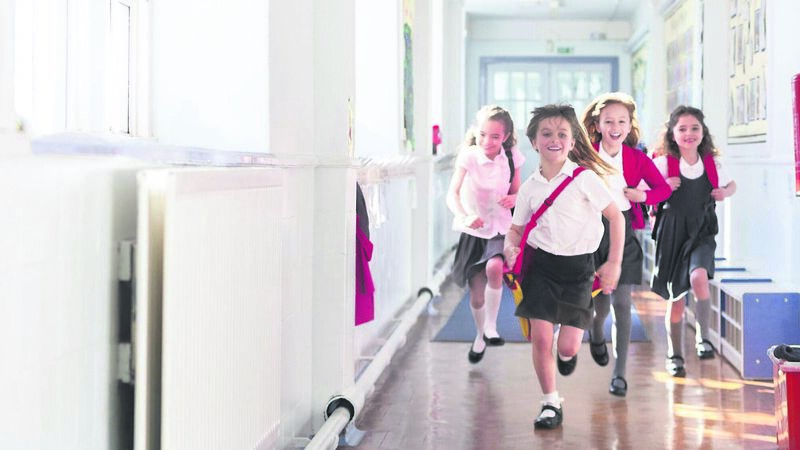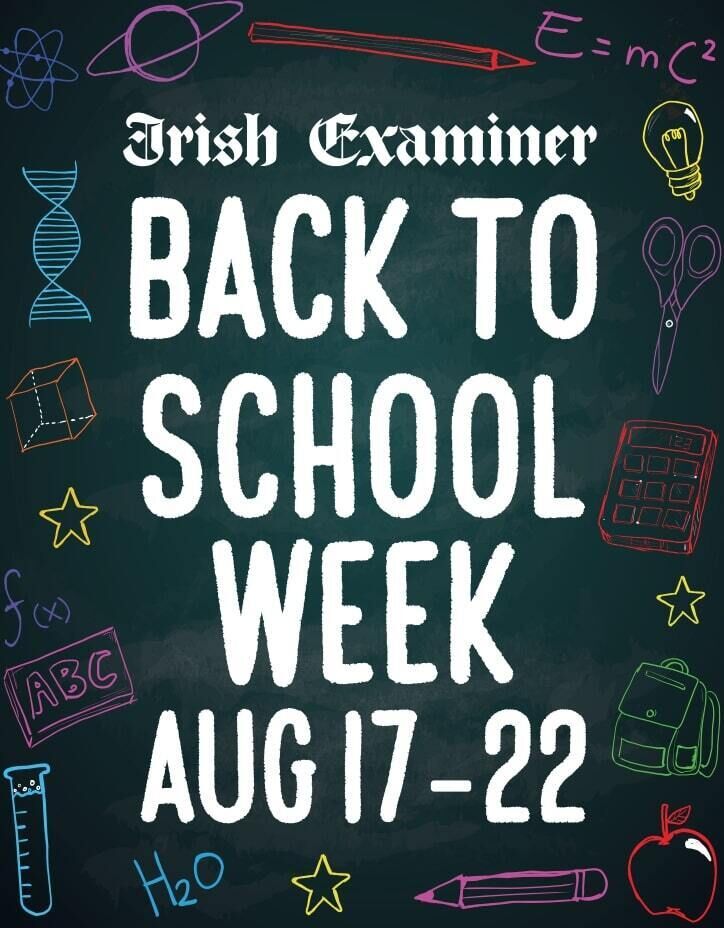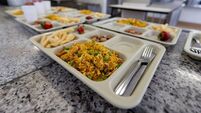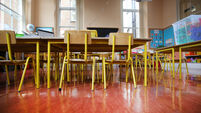Back to School: Primary life lessons

Socialising with peers is key to children's emotional development, but when children return to school over they next couple of weeks, they will enter a changed school landscape. Picture: iStock
Supported by a €375m government stimulus package, schools are set to reopen within the next week or so. It’ll be a school return like none other, with parents, children and teachers bracing themselves for new realities – demanded by the urgency of protecting ourselves from Covid-19.
And so children will enter a changed school landscape – classrooms reconfigured to facilitate physical distancing, classes divided into bubbles and into even smaller pod subsets.
A reader survey, carried out last month, asked parents of primary schoolchildren how they felt about their children returning to school following lockdown.
They raised many concerns – ranging from fear their child would pick up coronavirus to worries about accessing computers/technology or support for children with special needs.
They worried about irresponsible parents sending children to school even if unwell, they worried their child would ‘be in fear of Covid and over-stressed’, that it wouldn’t be possible to stop children mixing closely, that ‘my child has asthma – it’s large exposure after being so careful all summer’.
Most respondents praised teachers and schools which, at short notice, adapted to online education and kept track of children’s progress.

Homeschooling truly gave many parents a new appreciation of teachers: ‘... my child’s school worked extremely hard during lockdown – now I can see the true value of teachers because after homeschooling I realise how hard a job teaching is’.
Many parents also said their children couldn’t wait to see friends: ‘My kids just want to see their friends and play in the yard together’. More than one parent felt the psychological impact of missing school had been under-rated.
A sizeable number worried about undermining of their child’s social skills: ‘My daughter’s an only child.
Attending school is extremely important and not just from an educational perspective. She needs to socialise with her peers, the prospect of continued “confinement” worries me’.
Another hoped ‘they aren’t asked to social distance. I hope they can play freely with friends in the yard. I hope there’s still plenty of play in the infant classroom’, while another worried about forced social distancing: ‘we’re social beings – forcing students to stay away will create/encourage anxieties to develop, [it will] regress social skills’.
Many of these comments capture an essential truth: that socialising with peers is key to children’s emotional development, and just as important as academic learning.
Author and psychotherapist Stella O’Malley says lockdown has given parents new appreciation of what school provides – we’ve had to renew and review what schools were created for.
“There’s something lovely about a group of children coming together with an adult who wants to teach them,” she says, describing the classroom as the first society we learn to live in.
“It’s essential we learn to live in society, even when we don’t agree with all the rules or like everybody. School’s a taster for what adult life will be like – but it’s only for a few hours a day and then you go home to your own family.”
Dr Colman Noctor, psychotherapist with St Patrick’s Mental Health Services, says motivation and drive are fuelled by the class group and in this way school is crucial, facilitating children to learn from each other.
“The peer dynamic’s hugely important. Positive peer pressure keeps children engaged in the work, in social, physical and emotional development. There’s a sense of ‘I want to keep up with you’, ‘I want to be friends with you’, ‘I want to be the opposite of you’.”
Pointing to regulation – of behaviour, desire and activity – as the ‘task of childhood’, Noctor says the classroom culture creates opportunities for learning social skills: turn-taking, abiding by rules and learning to wait, intervene, step back. “This is all being played out and learned in the school environment. The other [classmate] is really important for creating the feedback I need to learn. I may learn ‘being fun attracts people to me’ or ‘the more kind and supportive I am, the more people like me’ or ‘if I’m mean, people react to that’.”
Joanna Fortune, psychotherapist and author of the 15-Minute Parenting books (the teen-years volume is out in October), agrees the peer group is an important hub of social development – within it, children learn how to develop and sustain friendships, how to engage in small and large group activity with critical thinking, reciprocity, turn-taking, solution-focused thinking and empathy.
She says these social skills are the “essence of general civility” and help children learn how to function in a social world. “They learn about themselves – how to better understand themselves from the inside out, what gives them pleasure, what doesn’t make them feel good. They also learn to read how others outside of them experience them and how to change their own behaviour to elicit a different response from others. These social skills teach children they’re part of a system bigger than themselves.”
Imagine if you weren’t socialised, says O’Malley. “You’d think you were inordinately special – whereas at school, children learn they’re all special in their own way. They learn to listen, take direction – and that other people might know more about a subject. They learn the need to respect rules – because if everybody did their own thing anarchy would ensue. They learn somebody really annoying could have a nice side. And they experience that lovely collective feeling of learning something together.”
Fortune says under sevens may well have enjoyed pro-social benefits to lockdown. “They take their social and emotional cues from parents and siblings and they’ve had all of this extra time with them.”
She identifies eight to 14-year-olds as the group most lockdown-impacted – because their important hub of social development is outside of their family, with their peers, and they’ve been denied access to peers at a peak brain development time.
“For this age group it’s a time of belief-formation, deepening understanding of self, others and the world around them and they’ve been denied this opportunity.”
But she believes most children will recover fairly well, fairly quickly, once back at school, though she advises allowing four to six weeks for “some wobbles and emotional regression in all children, as there has been so much change put upon them in a short space of time”.
Some parents have told Noctor their children, now free to go out and mix with children in their area, actually don’t want to.
“They’re feeling discomfort with what’s normal,” he says, adding that avoidance – which lockdown was all about – isn’t a good coping strategy.
“With avoidance, we were sold a poor coping strategy.”
As children return to what he calls the ‘new abnormal’, Noctor says how the adults in the room are will be really important.
If children go back to an environment where sterility’s emphasised above all, where adults are “nervy”, and this goes on for a long time, children will see it as the normative template. “Though it takes time for the normative to become entrenched,” he adds.
However if current necessary safeguards and protocols – and all attendant demands for physical distancing, pods and PPE – are seen as a temporary measure, children will rebound.
“They’re generally adaptable creatures. They adapted to cocooning and the hope is it’ll be the same when they re-board [at school],” says Noctor.
As for breaking children into pods, Noctor hopes – rather than randomly assigning children to pods – some thought will be given to how the children in that pod will function together.
“One would hope dynamics of personality and ability will be taken into account.”
Fortune says making significant changes to how children socialise will bring significant impacts, but she urges parents to save requests, for example, to move their child to a different pod, for extreme circumstances.
“There should be no flooding of teachers with requests that ‘my child would rather be in that pod’. Instead, support children to adapt to these challenges.”
If a child’s disappointed, she recommends parents acknowledge this, while encouraging them to see the positives of their situation: ‘who do you like to play with in the pod?’ or ‘what was the best thing that happened yesterday in the pod?’
In the current exceptional circumstances, we must all bend a little, and the reality is children will have to learn to interact with people who aren’t their chosen friends. “It’s a good social skill to learn,” says Fortune.
O’Malley foresees a lot of high emotion (‘she’s not in my pod!’) and people getting fixated around trying to get children moved out of one pod and into another.
“But if your child looks back and says the worst thing about Covid-19 was learning to manage difficult people in the class, well that’s OK. In fact, it’s a gift for life,” she says, adding that while children don’t get on with everybody in their class, they know each other very well.
“Almost like an extended family.” And she believes most children will thrive better in the pod, even with difficult members.
“The smaller group will make it easier to navigate for children. It’s much easier for the brain to contemplate a smaller number than a large.”
A big fallout of lockdown, homeschooling and kids confined to base 24/7 has been even greater reliance on digital devices. “Children got a free rein. I can see why.
Parents felt ‘well, at least they can have a virtual life’,” says O’Malley, adding nevertheless that we have to come back from a scenario where children are online-obsessed.
“It was a very specific crisis and bad habits formed – we all binged [on technology]. When you’re in the middle of a crisis, you might eat lots of doughnuts. But you have to come back from that.” So how do you manage it? Noctor urges parents to bring back structure.
“Bring back regular bedtimes, get-up times, dinner time. Parents should role model this.
"Having this internal structure will help us get back. And then parents should fill the screen time with all the other stuff – training, activities.”
For the first time ever, we will ask children to do something highly unnatural – to maintain a distance from each other.
We can only trust their natural optimism, inventiveness and sense of fun will steer them through – and that schools will capitalise on these positive childlike attributes – so they can still thrive socially despite the unprecedented demands.









